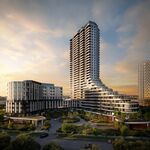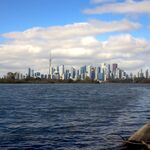howl
Active Member
Also agreed. The problem isn't moving cars. The problem is moving people. Highways just don't move enough people in an urban setting to be cost-effective. If you're going to base a city on automobile use you MUST limit the density to suburban levels pretty much throughout, which means you end up with cities like Detroit, Dallas or Atlanta, which have downtown cores that are mainly parking lots and then miles and miles of suburbs. Toronto made a conscience decision back in the 1960's NOT to go down that route. We chose subways and streetcars instead. To try to reverse that decision now would be ludicrous, both financially and socially.




